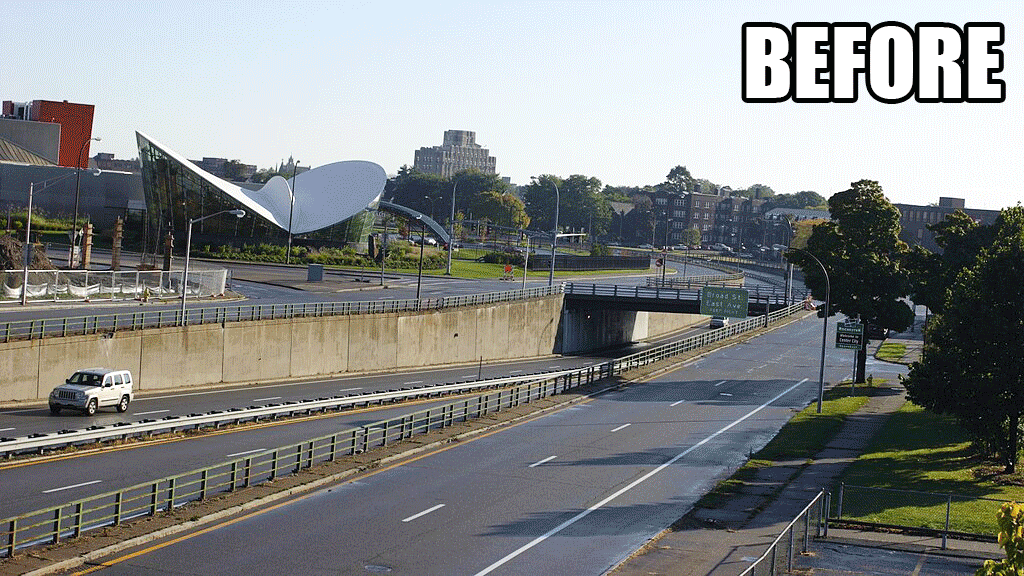These Strong Towns advocates identified a lack of bike parking at recurring local events and did something about it…by creating bike valets!
Read MoreIn Baltimore, some of the city’s least wealthy individuals may be overpaying on their property taxes by nearly $300 a year, whereas some of the richest could be underpaying by $14,000 or more.
Read MoreOn this episode of the Strong Towns Podcast, host Chuck Marohn chats with Conor Semler, an associate planner with Kittelson and Associates who’s promoting some innovative approaches to transportation planning.
Read MoreRochester, NY, made the decision to undo a past harmful highway project. Here are the challenges they faced—and the rewards they’ve seen since freeing up that valuable land for development.
Read MoreA city may not be able to change from a sales tax system to a different approach—it might be stuck with what the state allows—but that doesn’t make them helpless to overcome the challenges the sales tax presents.
Read MoreThis block in Tulsa, AZ, got a makeover in this community-led placemaking event, showing that you don’t need a lot of money to transform an empty space into a community asset.
Read MoreStrong Towns ideas made it to the U.S. Senate this month. In a hearing called “Housing Supply and Innovation,” the Committee on Banking, Housing and Urban Affairs heard from expert witnesses about America’s housing crisis.
Read MoreOn this episode of The Bottom-Up Revolution, we chat with Marques King, a licensed architect, practicing urban designer, and small-scale developer operating out of Detroit, Michigan.
Read MoreSometimes even the most well-meaning features of our cities present challenges to different people. What struggles would you observe in your community if you pictured it from someone else’s perspective?
Read MoreIt can be difficult to find a free public restroom. Here’s how one city in Alberta is tackling the problem, through small, immediately effective solutions.
Read MoreNew York City Mayor Eric Adams has proposed a substantial set of reforms to enable incremental and missing-middle housing solutions and add 100,000 new housing units to the city.
Read MoreDe-stroading the country will make everything better for everyone, including those who regularly drive, and create places we are proud of.
Read MoreWhen the city of Kingston, NY, lagged on promises to rework its zoning code, this group of advocates stepped in to make it happen.
Read MoreAre cars really helpful tools or disruptive devices? Here’s some guidance from ethicist Albert Borgmann on the distinction.
Read MoreWe ran an article and a podcast about speed cameras, and got some thought-provoking responses in return from readers and listeners. Here’s one in particular that grabbed our attention.
Read MoreIf you love Jane Jacobs or want to learn more about her views and how Strong Towns advocates are working to make them a reality, you will want to explore this conversation between Chuck Marohn and Charles Pignal.
Read MoreTransit-oriented development suggests that homes, shops, and services should all be located within 400 meters of transit. The actual distance to create vibrant streets may be much shorter.
Read MoreLike many other places around the U.S., Philadelphia is facing school bus driver shortages and bus scheduling issues. Its solution? Offer $300 per month to families that drive their children to school.
Read MoreThe Strong Towns movement defies political categorization, and that can be confounding for some. Here’s a response by Autonorama’s Peter Norton to a recent conversation about Strong Towns’ political leanings (or lack thereof).
Read MoreAdd Phoenix, AZ, to the list of cities embracing accessory dwelling units as a tool to tackle the housing crisis.
Read More



















